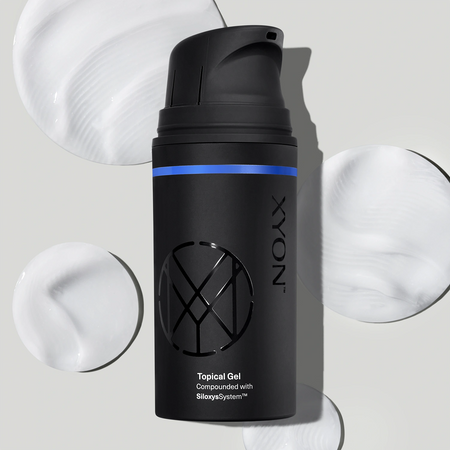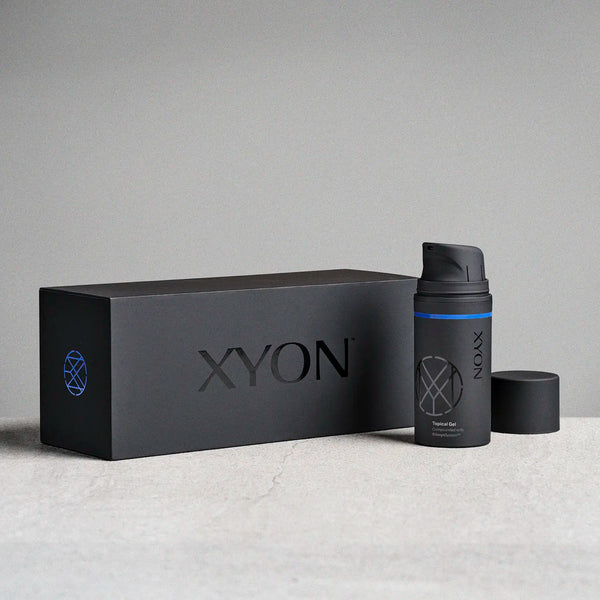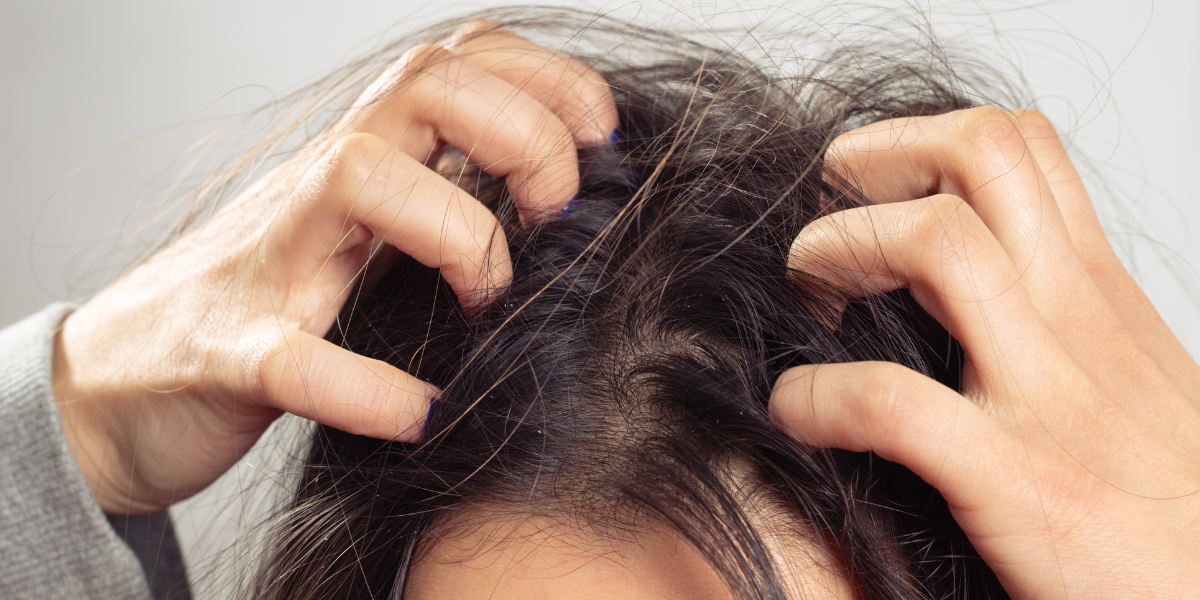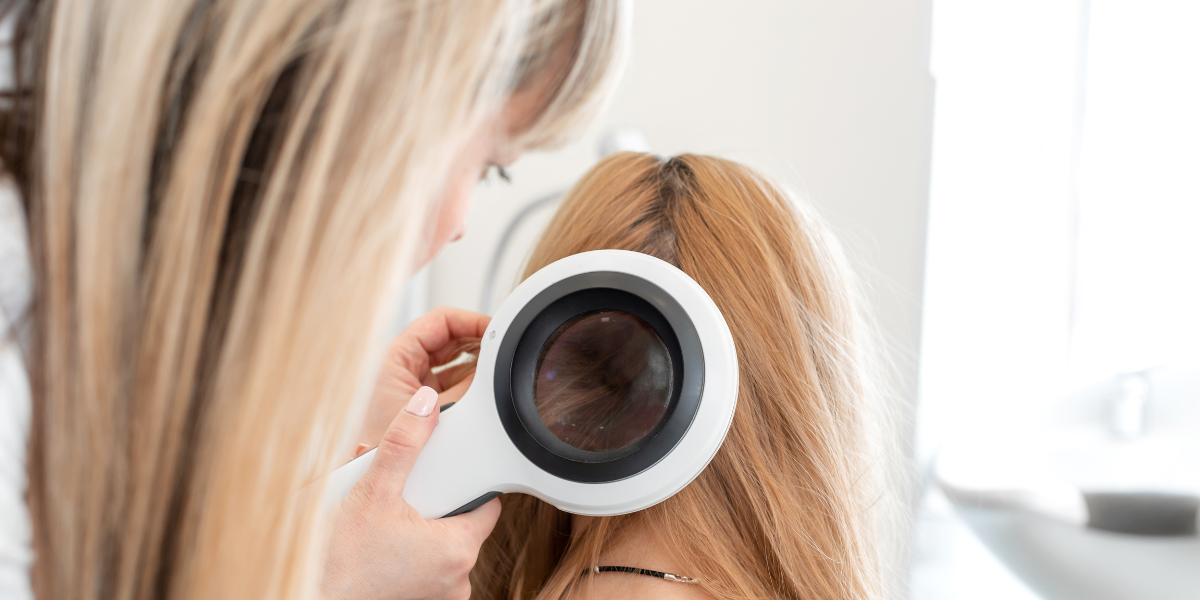Do steroids cause hair loss? To answer this question we need to define what we mean by steroids and remind ourselves about what actually causes pattern hair loss.
In the context of this article, the steroids we’re referring to are anabolic steroids (also known as androgenic steroids). They are synthetic forms of male sex steroid hormones, most commonly testosterone, that may be used by athletes and non-athletes to increase muscle mass and improve athletic and physical performance. These types of steroids are not to be confused with other steroid treatments such as prednisone, which are prescribed by doctors to treat inflammatory or immune conditions.
Anabolic steroids are available in injectable or oral form. In addition to causing hair loss, they’ve also been linked to numerous potentially serious heart-related side effects, elevated cholesterol, blood clots and the development of mood disorders and aggression. There have also been reports of impacts on reproductive health, including sexual dysfunction and lowered sperm counts (Hoffman and Ratamess, 2006).
We’re going to focus on the link between steroids and hair loss and explain how they can have this effect, including expert insights from Dr. Christina Han, a board-certified dermatologist and XYON’s medical director.
Do all steroids cause hair loss?
No, not all steroids are known to cause hair loss. Corticosteroids and anabolic steroids are two very different substances with completely different effects on the body. Dr. Han explained this further:
Anabolic steroids are most likely to cause hair loss, particularly in those who are genetically susceptible to its effects on DHT. They’re man-made steroids commonly used to increase muscle mass and they’re like testosterone in their ability to bind to androgen receptors. Because of their similarity to testosterone, they can promote the risk of hair loss (among other things) in those who are genetically prone.
Corticosteroids, however, are different from anabolic steroids and don’t exert testosterone-like effects. This means that they don’t pose any increased risk for male pattern balding. Instead, they are steroid molecules that bind to glucocorticoid receptors in the body and help to reduce inflammation.
So, while not all steroids cause hair loss, all anabolic steroids behave as synthetic testosterone and therefore, they all have the potential to cause hair loss. Some examples of specific anabolic steroids that could cause hair loss include:
- Anavar® (Oxandralone)
- Trenbolone
- Poviron®
- Prednisone
Hair loss on Trenbolone and Anavar ®
Trenbolone is an anabolic steroid originally marketed for increasing muscle mass in livestock, but in the late 1980s it became a popular performance enhancing drug amongst athletes. Despite never being approved or marketed for human use, Trenbolone continues to be a popular substance used in performance enhancing for increasing muscle mass and reducing body fat.
But not without cost. Dr. Han explained that since Trenbolone is an anabolic steroid, it mimics testosterone when added to the body, further adding:
Trenbolone can directly stimulate the same receptors as testosterone and DHT. As a result, the hair follicles can be negatively impacted by the process of miniaturization – the key process in male pattern balding. In essence, if you have the genes for male pattern balding, taking trenbolone is driving more ‘fuel to the fire’ and can lead to premature and faster hair loss.
Anavar® (generic name oxandrolone) is slightly different to trenbolone in that it’s approved for human use, but in the context of treating various medical conditions, not for performance enhancement. Though the principles remain the same.
When Anavar® enters the bloodstream, it binds to androgen receptors, which may promote hair follicle shrinkage in those with the genetics for pattern hair loss. This is one of the many reasons that Anavar® and other similar anabolic steroids, are considered controlled substances and should not be used outside of their prescribed medical context.
Are injectable steroids more likely to cause hair loss?
No. There is no data to back whether hair loss is more likely with oral steroids or injectable forms.
Unfortunately, both can negatively impact hair health, as both forms allow for systemic (full-body) exposure to medication
It’s not a question of which are the best and worst steroids for hair loss prevention, but the general effect of anabolic steroids on the body and specifically, the hair follicles. Whether you experience hair loss while using steroids will also depend on your sensitivity to hormonal changes and genetic predisposition to go bald.
Steroid use can increase your risk for hair loss. To learn how you can get ahead of thinning hair, connect with an expert.


Concerned about DHT and hair loss? We have solutions.
How do steroids cause hair loss?
When high amounts of exogenous (“made outside the body”) testosterone are introduced into the body in the form of anabolic steroids, dihydrotestosterone (DHT) production tends to increase to regain a balance in hormone levels. When DHT levels rise, these changes can be felt at the level of hair follicles in the scalp.
DHT acts on androgen receptor sites on hair follicle cells to trigger hair follicle miniaturization. This process is what slowly renders hair follicles unable to produce healthy hairs. People with a genetic predisposition for balding may be at a higher risk of experiencing hair loss as a side effect of anabolic steroid use.

How do you stop hair loss while on steroids?
Because hair loss in people taking anabolic steroids is a result of increased DHT production, 5-alpha reductase inhibitors such as finasteride or dutasteride, which help block the formation of DHT, may be taken to try to slow the process of hair follicle miniaturization. But there are insufficient clinical studies to really answer this question with certainty. The degree of benefit is hard to predict and in some cases efficacy may be limited.
We asked Dr. Han if there are any specific steps that can be taken to help prevent hair loss when taking steroids and she told us that she advises the following to her patients:
It’s a good idea to avoid anabolic steroids altogether. It’s widely accepted that there are other potential health risks other than hair loss, such as skin, cardiovascular, liver and kidney issues, to name a few.
If, however, you are choosing to take an anabolic steroid, then combatting it with a DHT-blocker, such as finasteride may help to slow down the hair loss. You should speak to a healthcare provider to review these possible risks and ensure that you’re a good candidate for using a combination therapy.
Can short-term steroids cause hair loss?
Very short-term steroid use probably won’t have a negative effect on the hair growth cycle and cause hair loss. But several months or years of taking anabolic steroids, on the other hand, can have a much higher chance of triggering hair follicle miniaturization and causing progressive hair loss.
Will hair loss from steroids grow back?
Hair loss exacerbated by anabolic steroid use may be reversible if steroid use is stopped. The earlier this is done, the better. The decrease in androgen levels can help slow the progression of DHT-mediated pattern hair loss. Depending on the extent of balding and if you decide to start a treatment such as minoxidil or finasteride for hair loss, the improvement in your hair could be dramatic. At XYON, we’re pleased to be able to connect you with doctors who can discuss your treatment options with you.




